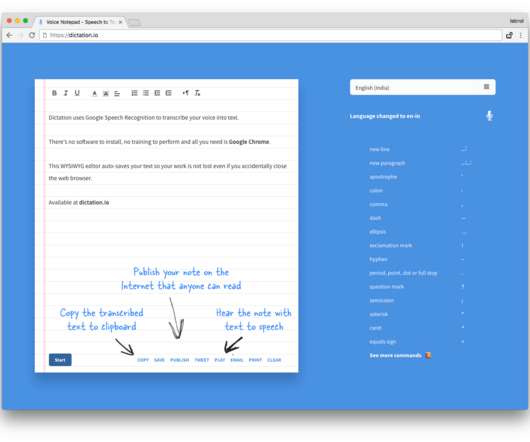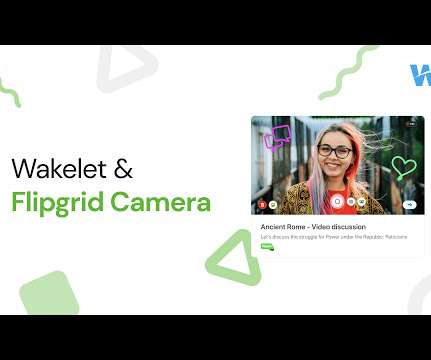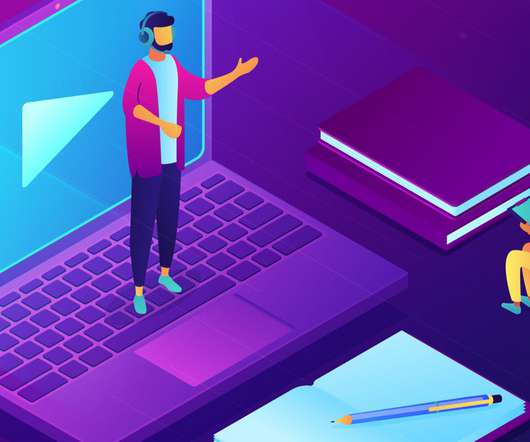Using Assistive Technology for Your Struggling Readers
edWeb.net
MAY 14, 2019
Eighty-five percent of what we learn we learn is by listening and students can listen and comprehend two grade levels above their reading levels. Assistive technology, especially audiobooks, provide both multisensory reading and writing experiences and enhance word recognition. is “As often as they need it.”



















Let's personalize your content